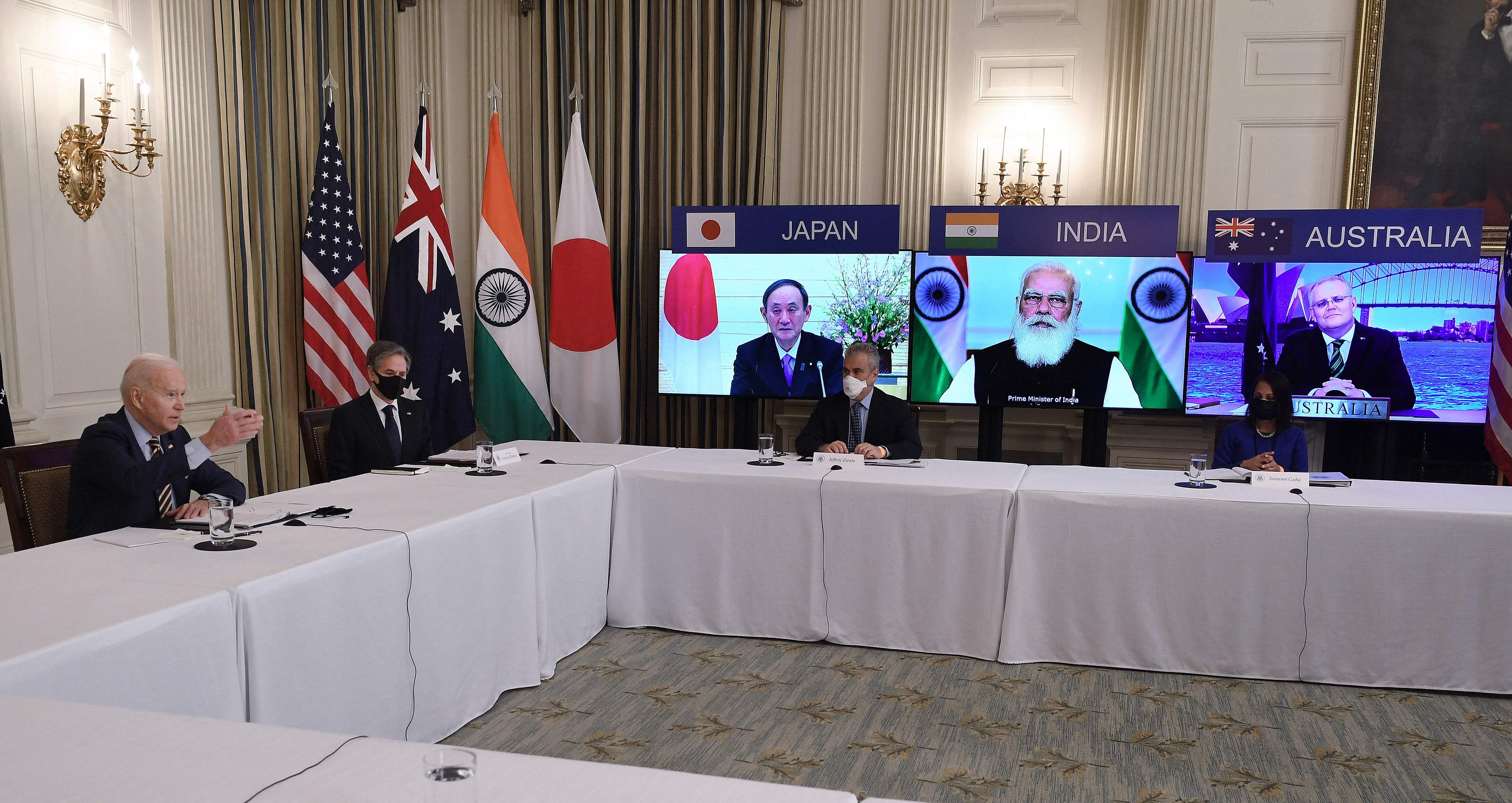
India on Friday joined Australia, Japan and the United States to elevate the Quad to the level of the Heads of Governments and to announce a partnership to provide Covid-19 vaccines all across Indo-Pacific – a region, where the four democracies want to counter growing influence and belligerence of communist China.
The US Development Finance Cooperation will support the Biological E Limited based at Hyderabad in India to increase capacity to produce by the end of 2022 at least one billion doses of Covid-19 vaccines, including the one developed by Johnson & Johnson. The Japan International Cooperation Agency (JICA) will also provide a concessional yen loan to the Government of India to expand manufacturing of the Covid-19 vaccines for export.
“We are united by our democratic values, and our commitment to a free, open and inclusive Indo-Pacific,” Prime Minister Narendra Modi said as he joined Prime Minister Scott Morrison of Australia, Prime Minister Yoshihide Suga of Japan and President Joe Biden of the United States for the first-ever summit of the Quad. “We will work together, closer than ever before, for advancing our shared values and promoting a secure, stable and prosperous Indo-Pacific”.
“A free and open Indo-Pacific is essential to each of our futures,” echoed the US President, who just weeks after taking office mooted the proposal to hold the virtual summit with his counterparts in India, Japan and Australia.
The historic summit marked the elevation of the four-nation coalition to the level of Heads of Governments amid China’s growing belligerence, not only along the disputed boundary with India but elsewhere in the Indo-Pacific region too, like the disputed waters of the South China Sea and the East China Sea as well as the Taiwan Strait.
The summit resulted in the first-ever joint statement by the leaders of India, Japan, Australia and the US. In a subtle-but-firm message to Xi Jinping in Beijing, the Quad leaders committed to promoting a free, open rules-based order, rooted in international law to advance security and prosperity and counter threats to both in the Indo-Pacific and beyond.
The four leaders reaffirmed support for “rule of law, freedom of navigation and overflight, peaceful resolution of disputes, democratic values, and territorial integrity” in the region.
They emphasized the urgent need to restore democracy and the priority of strengthening democratic resilience in Myanmar.
They agreed to set up three working groups to steer cooperation among the four nations for ensuring safe and affordable Covid-19 vaccines for all the nations in the Indo-Pacific region, as well as in emerging and critical technologies and in dealing with climate change.
The summit took place more than one-and-a-half decades after it was first conceived in the aftermath of the Indian Ocean tsunami in 2004.
Though India, Australia, Japan and the US had first formally launched the Quad in 2007, but it had failed to take off and fizzled out very soon. The four nations, however, re-launched the Quad in Manila in November 2017 to create a bulwark of democratic nations to counter expansionist moves of China in the Indo-Pacific region.
Modi, however, underlined that the virtual summit on Friday showed that Quad had finally “come of age”. “It will now remain an important pillar of stability in the region.”
His counterparts too echoed him to stress that the Quad was finally here to stay.
“As four leaders of great democracies in Indo-Pacific, let our partnership be an enabler of peace, stability and prosperity in the region,” said Morrison. Suga said that the Quad should forge strongly ahead to make visible contributions to peace, stability and prosperity in Indo-Pacific. Biden reaffirmed the commitment of the US to working with India, Australia and Japan to achieve stability in the region.
The four leaders also agreed to have an ‘in-person’ summit on the sideline of another multilateral conclave later this year.
